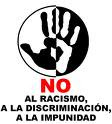
BOULDER, Colo. — A judge has yet to decide whether Ward L. Churchill, the controversial former University of Colorado professor, will get his job back, but on the campus here, some have already made up their minds.
“I don’t think he should come back,” said Marissa Jaross, a senior anthropology major. Though Ms. Jaross said she believed the university was looking for a way to get rid of him, she added: “I think he’s kind of a shoddy academic. I wouldn’t look at his work as great, or even worthy of my time.”
Barbara Bintliff, a law professor and former chairwoman of the faculty assembly, shared that view.
“Everyone is just aghast at the prospect that he would be back on the faculty,” Professor Bintliff said. “I can’t imagine how he would function normally or what kind of relationship he could possibly have with the faculty.”
Mr. Churchill, the former chairman of the ethnic studies department, caused a national uproar after it came to light in 2005 that he had written an essay referring to some victims of the Sept. 11 terrorist attacks as “little Eichmanns.” He was fired two years later when a faculty committee concluded that he had plagiarized and falsified parts of his scholarly work on the persecution of American Indians.
Last week, a Denver jury determined that he had been wrongfully dismissed because of his political views, though he was awarded only $1 in damages.
Sometime in the coming months, Judge Larry J. Naves of Denver District Court will either reinstate Mr. Churchill to his tenured position, as his lawyer is requesting, or order the university to pay Mr. Churchill an annual salary for a period of time.
While faculty members initially leapt to defend Mr. Churchill’s right to free speech after his essay came to light, support for him eroded after the faculty report.
“The guy is a liar,” said Elizabeth Dunn, an associate professor of geography and international affairs. “It is really hard to conceive of working collaboratively with somebody that doesn’t share the fundamental values of honesty and truthfulness in scholarship.”
Still, there are those who feel that Mr. Churchill deserves to be back in the lecture hall.
“I would welcome his return to campus,” said Margaret LeCompte, an education professor who said she had always thought the university wanted to get rid of Mr. Churchill because of his comments about Sept. 11.
“He is a well-respected teacher, even by students who disagree with him — the kind of a person who should be at a university, where a dialogue of controversial ideas can be held in a safe environment,” Professor LeCompte said.
Among students, many of whom were not enrolled when the controversy first exploded, there is less familiarity with the nuances of the case but strong feelings nonetheless.
“I really hope for his presence back on campus,” said Vince Amezcua, a junior ethnic studies and psychology major. “I’ve heard a lot of good things about him, and I know he has a ton of good ideas he could bring forth.”
But Rachel Kimmel, a senior international affairs and psychology major, countered: “I definitely don’t want him to come back. What he said was terrible and egregious, but the plagiarism alone is reason enough for him not to be a faculty member.”
David Lane, Mr. Churchill’s lawyer, said reinstatement was more important than any financial settlement.
“The symbolism of Ward Churchill walking back into the classroom after having his civil rights violated in a McCarthy-like manner is overwhelmingly powerful,” Mr. Lane said.
Ken McConnellogue, a university spokesman, said Thursday that the institution was “strongly opposed” to Mr. Churchill’s returning and would fight to keep him from doing so.
“The things he was found to have engaged in by his faculty peers is behavior that we can’t have from our faculty or our students,” Mr. McConnellogue said.
Mr. Churchill remains as defiant as ever. In an interview, he said he was not looking for money, despite an article in The Daily Camera, a Boulder newspaper, which reported his saying he would settle for $1 million.
Mr. Churchill said that he was speaking hypothetically, and that his goal was to get his job back.
“Being restored to the position not only signals pretty clearly that the findings of the so-called jury of my peers were fraudulent,” Mr. Churchill said, referring to the faculty committee’s report. “It also restores me to the implied integrity and dignity of my rank.”
As for the possibility of being ostracized by some faculty members, Mr. Churchill said, “If somebody is uncomfortable with my being in that environment, they are free to leave.”
April 10, 2009
Campus Still Split After Jury Sides With Professor
By DAN FROSCH



















No hay comentarios:
Publicar un comentario